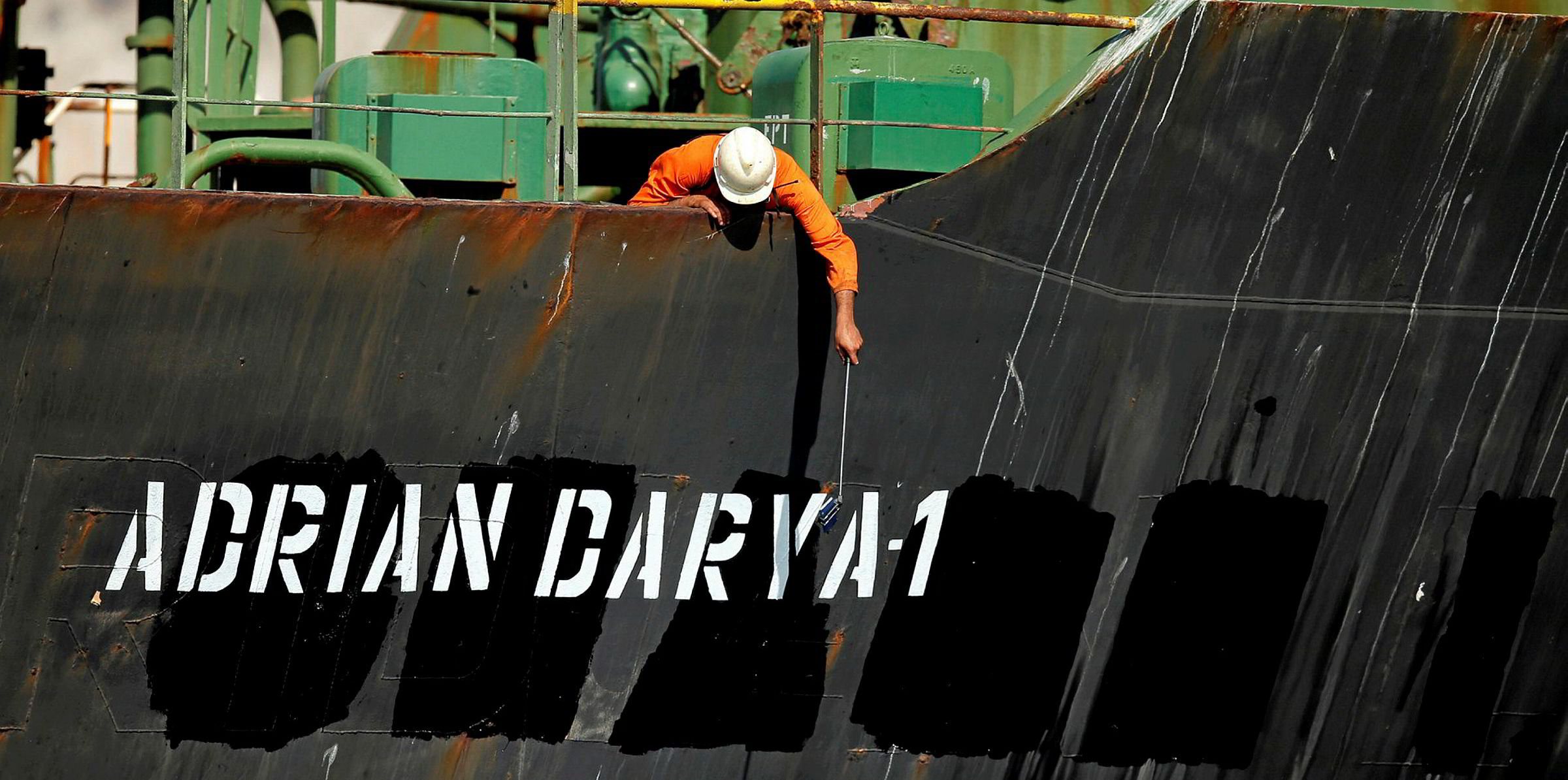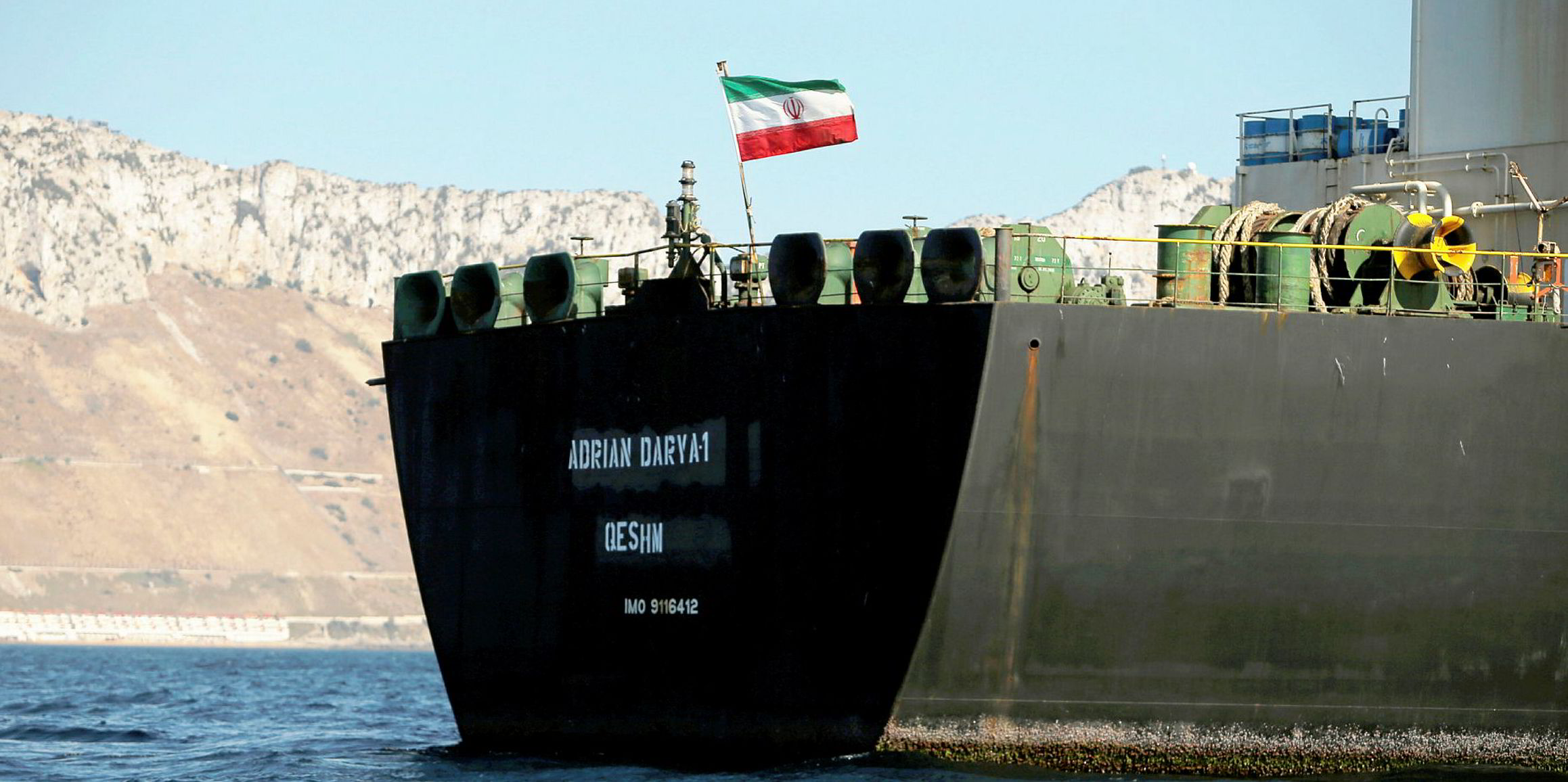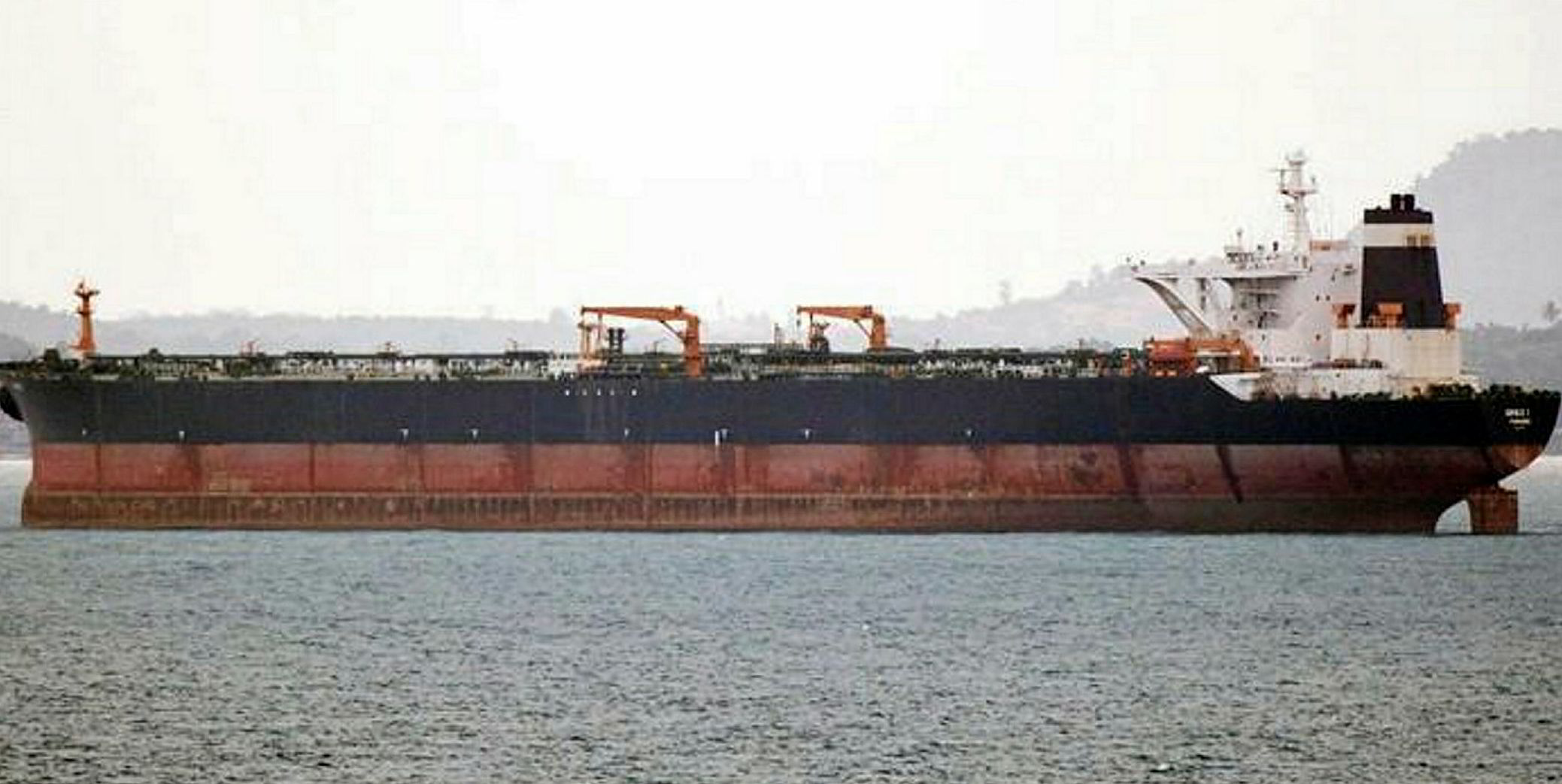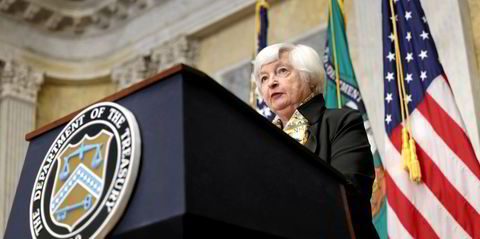The VLCC at the centre of a diplomatic standoff between the UK and Iran has left Gibraltar, the latest AIS data shows.
The 300,600-dwt Grace 1 (built 1997) has been renamed Adrian Darya 1 and re-flagged under the Iranian shipping registry after Panama delisted the ship due to possible links to terrorism.
On Sunday, Iranian Ambassador to the UK Hamid Baeidinejad said via Twitter: “A round-the-clock effort has been under way for port procedures and the deployment of a full crew on board since Thursday’s injunction was lifted."
Data from Bloomberg showed the ship set sail from Gibraltar for Kalamata, Greece, with an estimated time of arrival of 25 August.
News of the ship’s departure comes just hours after Gibraltar rejected a final US request to detain the oil tanker.
On Friday, the US Department of Justice (DoJ) unsealed a seizure warrant and forfeiture complaint in the US District Court for the District of Columbia, alleging that the vessel, all petroleum aboard it and $995,000 are subject to forfeiture based on “violations of the International Emergency Economic Powers Act (IEEPA), bank fraud statute, and money laundering statute, as well as separately the terrorism forfeiture statute”.
The documents alleged a scheme to “unlawfully access the US financial system to support illicit shipments to Syria from Iran” by the Islamic Revolutionary Guard Corps (IRGC), which the US has designated a “foreign terrorist organisation”.
“The scheme involves multiple parties affiliated with the IRGC and furthered by the deceptive voyages of the Grace 1,” the DoJ said.
“A network of front companies allegedly laundered millions of dollars in support of such shipments.”
Hands tied
However, Gibraltar said on Sunday that it was unable to “provide the restraining assistance required by the US”.
It said its inability to seek the orders requested was a result of the “operation of European Union law and the differences in the sanctions regimes applicable to Iran in the EU and the US".
“The EU sanctions regime against Iran — which is applicable in Gibraltar — is much narrower than that applicable in the US.”
According to Iranian state-run broadcaster Press TV, Iran has warned the US of unspecified "adverse consequences" for its attempt at seizing the Adrian Darya 1.
“Should this measure be taken or even spoken of, it would constitute a threat against free shipping,” foreign ministry spokesman Abbas Mousavi told reporters at a press conference on Monday.
Iran has conveyed “necessary warnings” to American authorities through official channels, especially the Swiss embassy in Tehran, “not to undertake this wrongheaded action because they will be faced with adverse consequences”, he added.

“We hope that countries respond to the US’ unilateral sanctions law-abidingly and reject them because the sanctions lack all foundation.”
British Royal Marines seized the vessel off the coast of Gibraltar on 4 July over allegations that it was carrying oil bound for Syria in breach of EU sanctions.
Iran responded by seizing the UK-flagged, 50,000-dwt tanker Stena Impero (built 2018) in the Middle East Gulf a fortnight later.
Greater protection
Britain has since sent out a second warship to the region to offer greater protection to UK-flagged merchant shipping.
“Until the Iranian oil tanker arrives at its destination the British must help end the crisis,” Heshmatollah Falahatpisheh, a member of parliament’s national security and foreign affairs committee, reportedly told the semi-official ISNA news agency.
“This means that the crisis with Britain is not over. Britain has the primary responsibility for ending the oil tanker crisis,” Falahatpisheh said.






